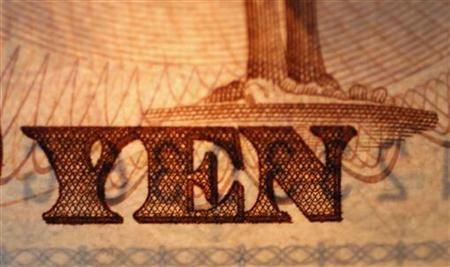Bank Of Japan Policy Board Meeting: Further Monetary Easing Expected

It is highly expected that the Bank of Japan will resort to additional monetary easing at its next meeting on April 27 so that the economy could recover from deflation and grow more strongly.
Earlier this month, the BOJ left its key interest rate unchanged with the policy board voting unanimously to keep its key rate within a range of zero to 0.1 percent. The board also unanimously decided to maintain the size of the bank's asset purchase program at 65 trillion yen ($800 billion). The program is the main tool used by the BOJ to keep interests rates near zero.
At that time Masaaki Shirakawa, the governor of the BOJ, said that it will closely examine Japan's economy when its policy board meets next to discuss growth and price forecasts. Shirakawa has reiterated that the central bank will pursue powerful monetary easing to pull the country out of deflation.
The policy board of BOJ will meet when the Japanese economy looks set to return to growth in the first quarter after contracting in four of the last five quarters. The economy should continue to expand over the rest of the year as reconstruction-related expenditure drives the GDP. Already the International Monetary Fund upgraded its forecast on Japan to 2 percent from its earlier 1.7 percent projection.
Aside from the boost from reconstruction spending, which largely reflects the replacement of lost assets, economic fundamentals are relatively weak, although they are on an improving trend. According to the March Tankan survey, business sentiment is lackluster and firms are downbeat about the prospects for an improvement before the second half of the year.
Meanwhile, the central bank is under mounting political pressure to expand its Asset Purchase Program following the apparent success of its February's 10 trillion yen ($122 billion) extension.
At the same time, analysts say that yet another round of asset purchase is not likely to make much difference to the outlook either for Japan’s currency or the economy, as financial conditions are already very easy.
February’s easing move certainly helped in weakening the yen and lifting confidence in equity markets, but this success was mainly due to the earlier than anticipated timing and the larger size of the increase in asset purchases. So even if the BOJ does loosen further at the end of this month, which is by no means certain, the markets may still be disappointed with the results.
The central bank has already used up much of its potential to surprise in February. Almost everyone now expects it to announce a further increase in asset purchases on April 27, leaving plenty of room for disappointment.
Also further monetary easing alone is doubtful to avert a renewed appreciation in the yen in the event of a further escalation of the crisis in the Eurozone.
© Copyright IBTimes 2024. All rights reserved.




















